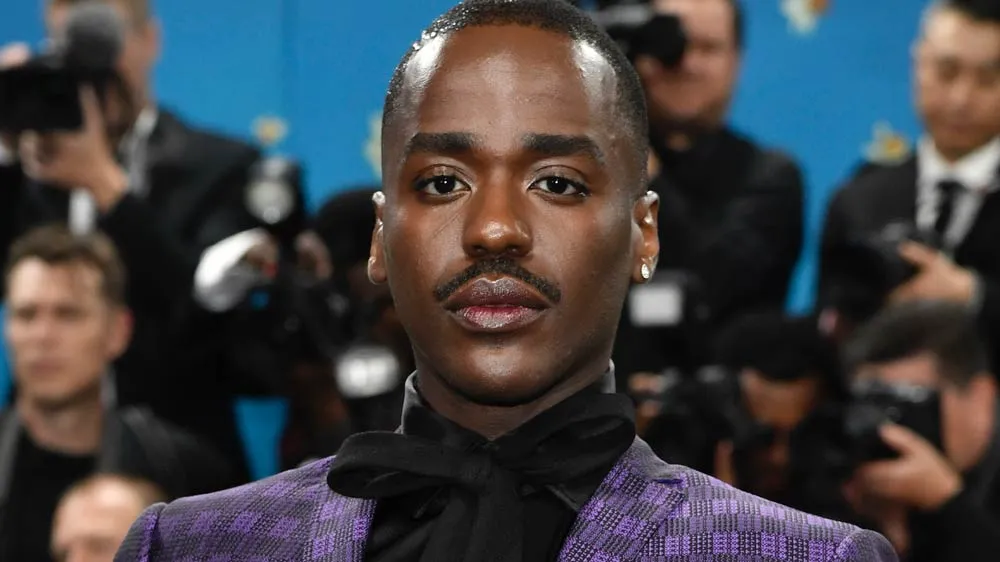May 28, 2013
Sex-Advice Ace Dan Savage on the Loose in New Book
Jason St. Amand READ TIME: 6 MIN.
It's been quite a run for Dan Savage, what with all the podcasting and tweeting and in-your-face defending of marriage equality.
Between speaking gigs, radio and TV appearances and the syndicated sex-advice column he writes from a desk that belonged to Ann Landers, Savage managed another book, "American Savage," out this week from Dutton.
Savage, 48, looks back on his mom, who died in 2008, takes us into his rationale for why cheating may just save your marriage and offers a glimpse of life at home with husband Terry Miller and their 15-year-old son.
He says he wanted to write the book in part because "you know, I'm kind of gay and kind of prominent and I've been slugging away at the marriage equality issue for a long time." But the book is about more than that. Savage talked to the AP about upsetting social conservatives, trashing the Bible and being among the first same-sex couples to legally marry in Washington state.
AP: How has becoming a father and watching your child grow changed you as a sex-advice columnist?
Savage: It has changed me a little bit. I've been getting letters from teenagers who are 14, 15 and 16 years old, and sexually active, and with questions or problems, and I would give them advice, and now when I get a letter from a 15-year-old I look at my son, who's 15, and I think, 'You're too young to be reading my column, you're too young to be in this situation.'
It's that getting older and becoming a parent and sort of drifting into that hypocrisy and the great forgetting of what being 15 is like, because I was sexually active at 15 and I'm fine, but when it comes to your own kid, you look at your own kid and go, 'No, no you have to wait at least 10 more years.' There's a surprising conservatism that parenting can unearth in your soul.
AP: Do you have any regrets about your speech last year at the high school journalism conference in which you said there was bull--- in the Bible and called a walkout by a small number of participants "a pansy-assed move?"
Savage: Yeah, I do. When you screw up you want to apologize and I did apologize for 'pansy-assed.' That was name-calling and that was hypocritical of me. I didn't apologize for 'bull----' in the Bible because there is, indeed, bull---- in the Bible. ... I don't pull punches when it comes to religion and I cannot avoid religion talking about the abuse of (lesbian, gay, bisexual and transgender) kids because so much has a religious motivation or rationalization.
AP: How does your late mother, who was a lay minister, influence your work?
Savage: My mother was really compassionate. There are three women I credit for sort of stumbling onto this gig and it being the right gig for me, and that was always Ann Landers, Xavier Hollander, who wrote the 'Happy Hooker' column in Penthouse magazine, and my mother.
My mom was Dr. Phil for the neighborhood. I was a weird sort of sensitive mama's boy and I would be in the kitchen, you know, hanging out doing nothing, sitting under the table while my mother sat there and hashed out problems with neighbor ladies and gave them advice. It was really listening to my mother give advice, and talk things out and listen to people and pick up on what they wanted, what they didn't want. My mother used to say, 'That's the way the world works. You make a living doing what I did as a woman for free.'
AP: Amid the backlash from religious conservatives over your speech to the high school journalism students, you invited Brian Brown of the National Organization for Marriage for dinner and a tense dinner-table debate, which has been viewed more than 200,000 times on YouTube. How was it off-camera, behind the scenes?
Savage: I didn't run it by Terry, that I was going to invite a very prominent anti-gay bigot into our house for dinner, so I had to come home and say, 'Oh honey, guess who's coming to dinner?' That did not go over well. The debate itself was really tense. I think I over-prepared. It felt like all the pressure of Christmas and then none of the delight. You know, all the preparation for a big Christmas dinner and instead of it being Santa Claus and chocolates and presents showing up it's a bigot.
AP: How does your advice on cheating differ from your predecessors' advice on cheating in a committed, monogamous relationship?
Savage: The standard position is that cheating is always wrong, and that we as sex-advice professionals are never allowed to tell anyone that cheating is OK, or the right thing to do. And in reality, there are times when cheating is the right thing to do, when cheating is the lesser of two evils.
I don't think people should violate commitments. I don't think serial adulterers get a pass. I don't think that someone should make a commitment that they can't keep. But knowing what we know about infidelity - something like 60 percent of all men in long-term relationships and 40 percent of all women cheat at some point - our default position should not be cheating must always lead to divorce. ...
I look at a marriage and I see a life and a shared history. I see children. I see shared property. I see shared goals. I see real love and longevity, and then there's an infidelity. ... There are cases where women and sometimes men later in life are no longer interested in sex at all and cannot fake it and it's emotionally scarring and traumatizing to fake it and go through the motions. What is the solution, divorce? Or some allowance, some accommodation, the turning of a blind eye. There's a lot of marriages like that, where late in life it's just not about sex anymore.
I'm a conservative. That's the irony. I think people should be the Clintons, not the Sanfords. I think people should be Anthony Weiner and his wife and not to default to divorce.
AP: Tell me about Dec. 9, 2012, the day you got married at Seattle's city hall, having previously been married to Terry in Canada, and the day marriage became legal in Washington state for same-sex couples.
Savage: It was just beautiful, 140-some couples married that day. What you saw were these same-sex couples who had been together 10, 20, 30, 40 years, their friends and their families. What was really remarkable about it was all the heterosexual people there who were volunteering, who were assisting.
I tell this story in the book of being at this park in Seattle many years ago, where a limo pulls up and a bride and a groom tumble out to get their portraits at this very famous park with a beautiful view of downtown Seattle. And as they're walking back to the limo everyone starts to applaud, and rightly so. Everyone takes delight when two people find each other and make that commitment. I was standing there clapping next to these two older gentlemen with two big dogs. It was clear that they were gay and I was gay. And as they get into their car, the one closest to me looks at me and says, 'We are always happy for them. Would it kill them to be happy for us?'
We've reached that tipping point, where they are happy for us. Now you see straight people looking at gay people and recognizing something about themselves in us.




